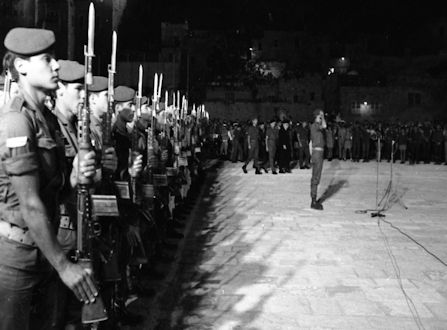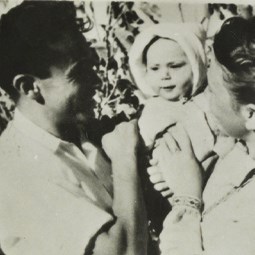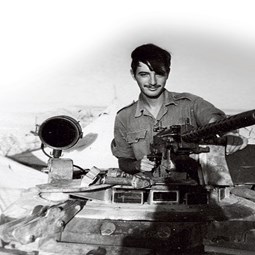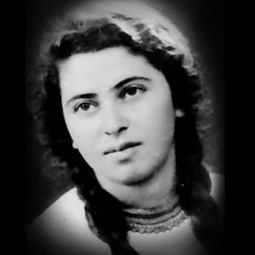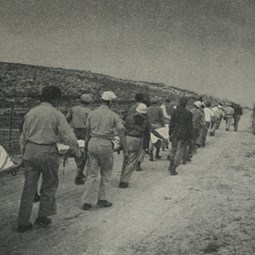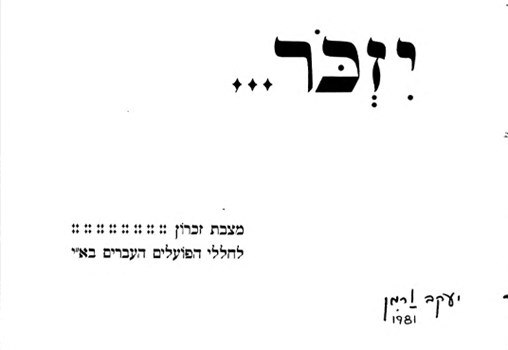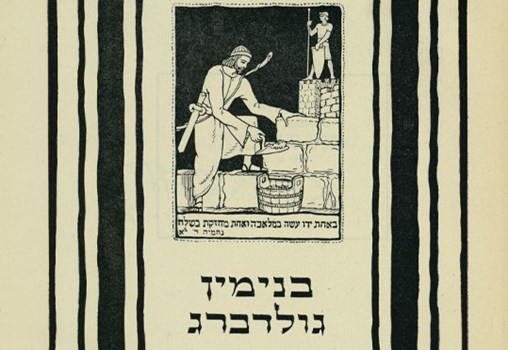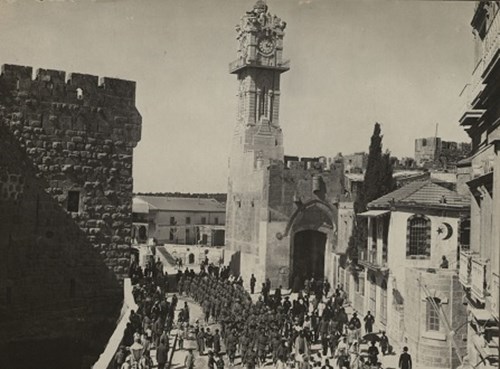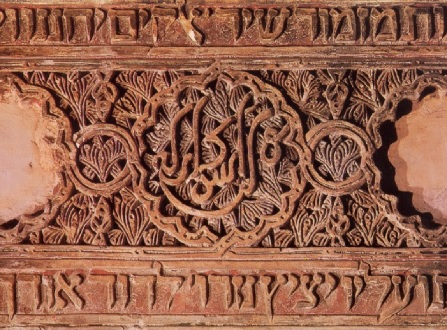Memorial Day for the Fallen Soldiers of the Wars of Israel and Victims of Actions of Terrorism
Memorial Day for the Fallen Soldiers of the Wars of Israel and Victims of Actions of Terrorism, also known as Yom HaZikaron (meaning "Day of Remembrance"), is a national holiday commemorating those who fell in Israel's battles as well as those who perished in hostile actions since the beginning of the Zionist movement. Yom HaZikaron falls on the 4th of Iyar (starting on or around sunset on the 3rd of Iyar), and is always commemorated on the day before Israeli Independence Day. The proximity of the festivals symbolizes the connection between the sacrifice made by the fallen and the very existence of the State of Israel. On Yom HaZikaron, the citizens of the State of Israel commemorate the fallen in both official and private memorial ceremonies.
In 1951, the government established a general day of remembrance on this date, and formulated the nature of the day and its customs, as they are known to this day. In 1963, the day of remembrance was enacted into law, and since then various amendments have been made to it. In the late 1990s, it was decided to add the commemoration of victims of terror to Yom HaZikaron.
Customs for Yom HaZikaron
Prior to Yom HaZikaron, flags are placed on the graves of Israeli fallen soldiers, and state flags are lowered to half-mast. Events begin at 8:00 PM with a minute-long siren, followed by a state ceremony at the Western Wall plaza. The following day, at 11:00, another siren sounds, this time for two minutes, opening the main ceremony at the military cemetery on Mount Herzl. At 13:00, a state memorial service for the victims of terror takes place on Mount Herzl.
During the siren, most Israeli residents stop their activities and stand still. Special prayers are said at ceremonies and synagogues, and in particular the "Yizkor" memorial prayer, and "El Malei Rachamim," prayers for the departed. Many people light a memorial candle in their home. Bereaved families visit the graves of their loved ones, and special ceremonies are held in cities and towns, IDF bases, workplaces, and educational institutions. The Israeli media dedicate special broadcasts in memory of the fallen and play songs associated with Yom HaZikaron.
The National Library of Israel preserves a wide range of historical materials that reflect the nature of Yom HaZikaron, its complexity, and its importance to Israeli society. On the Library website you can listen to moving performances of songs dealing with bereavement, memory, and wars, such as Elifelet, written by poet Nathan Alterman and sung by Arik Einstein, Berry Sakharov and others, Baladah Lachovesh ("Ballad for a Medic") sung by Yehoram Gaon, Anachnu Me'oto HaKfar ("We are Both From the Same Village") by Naomi Shemer, and more. You can also read stories from our blog dedicated to Yom HaZikaron, and view historic memorial books from the collections. A wealth of additional material can be found in the NLI catalog.

 Sign in with Google
Sign in with Google
 Sign in with Facebook
Sign in with Facebook
